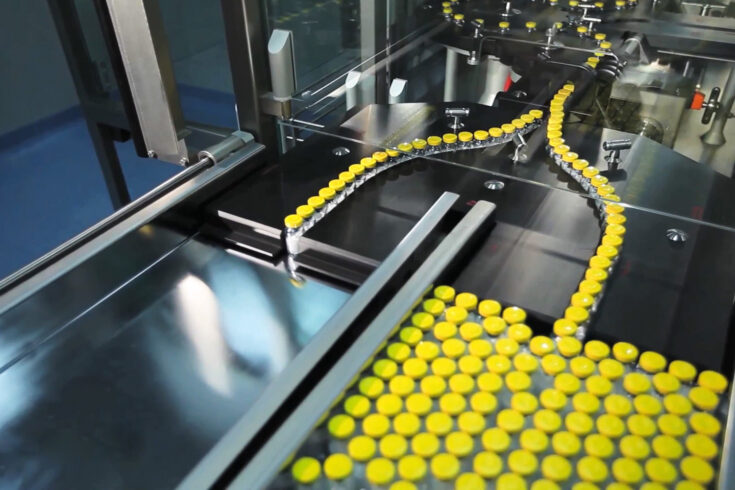Even before the COVID-19 pandemic, the world of pharmaceuticals was undergoing a transformation. The journey of medicines from laboratory to patient had to change in response to an ageing population, rising healthcare costs and the need for environmental sustainability.
In the meantime, exciting opportunities were and are being developed in western Scotland in both personalised medicines and patient-centric healthcare.
The existing processes for developing and manufacturing medicines were ready for a new approach.
About the project
The University of Strathclyde’s Centre for Innovative Manufacturing in Continuous Manufacturing and Advanced Crystallisation (CMAC) future manufacturing research hub is backed by more than £16 million of EPSRC investment. Its research underpins pioneering new ways to develop and make medicines.
CMAC’s vision is to revolutionise the way pharmaceuticals and high value products are made. Generating new understanding and developing creative solutions to real industry problems is a central focus for the centre.
Companies such as GlaxoSmithKline, Novartis and AstraZeneca signed up as founding partners, welcoming the chance to share their insights and influence research priorities.
“We recognised CMAC’s intention to be a place of useful learning and responsive to industry needs,” said Jon-Paul Sherlock, AstraZeneca’s Global Technology Strategy Director. “Appointment of an industry lead from within industry was another strong message of intent. Our products and processes are already benefiting from CMAC.”
An EPSRC Centre for Doctoral Training based at the university gets further support from UKRI, the Scottish government, local government and charities. This centre produces the skilled researchers that CMAC, its industry partners and the wider pharmaceutical ecosystem depend on.
Impacts of the project
Breakthroughs achieved or enabled by CMAC and its partners are leading to a new era of medicine manufacturing. Innovations include digital ‘twins’ and ‘MicroFactories’ that operate continuously without the need to interrupt production.
“In a world changed forever by COVID-19, everyone stands to win from flexible, secure, sustainable, cost-effective medicines manufacturing,” said Professor Alastair Florence, now CMAC’s Director. “This region aims to help the UK become the place to make novel medicines in novel ways. Without EPSRC’s support and sponsorship, it simply couldn’t have happened.”
Main impacts of the research undertaken at the university include:
- pharmaceutical firms joining forces with the university to start a manufacturing revolution
- leading-edge skills and facilities providing a springboard for innovation and growth
- £120 million in investment already attracted to Glasgow and the surrounding region
- rapid progress that sees the region primed to become a pacesetter in a huge global market.
Find out more
Read more about the work of the CMAC future manufacturing research hub on their website.
Read about the Centre for Doctoral Training in medical devices and health technologies on the University of Strathclyde website.

